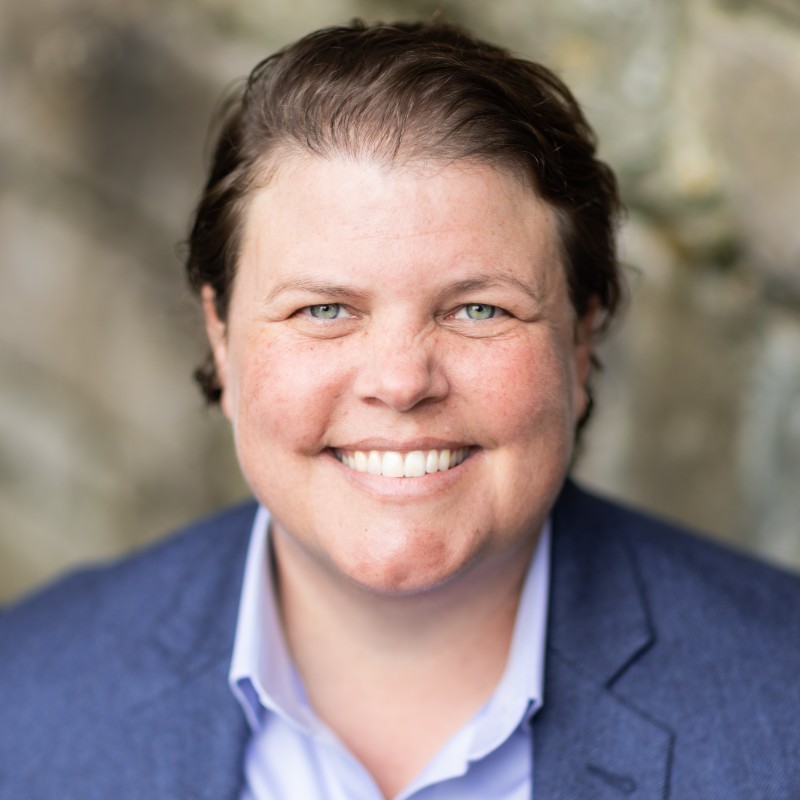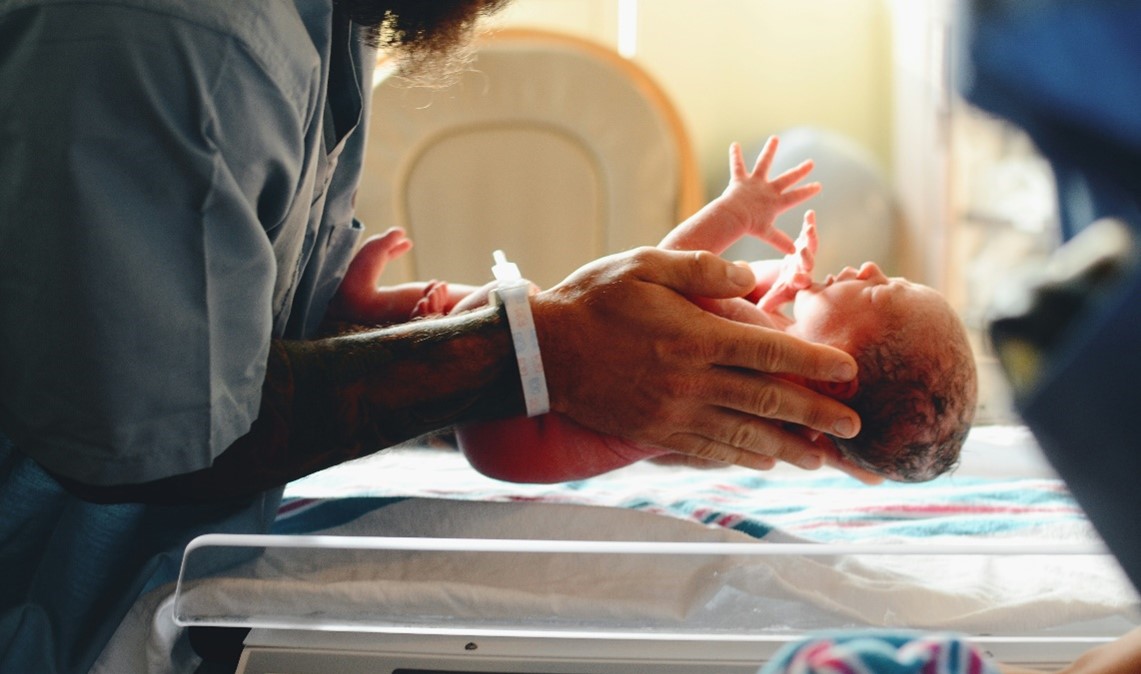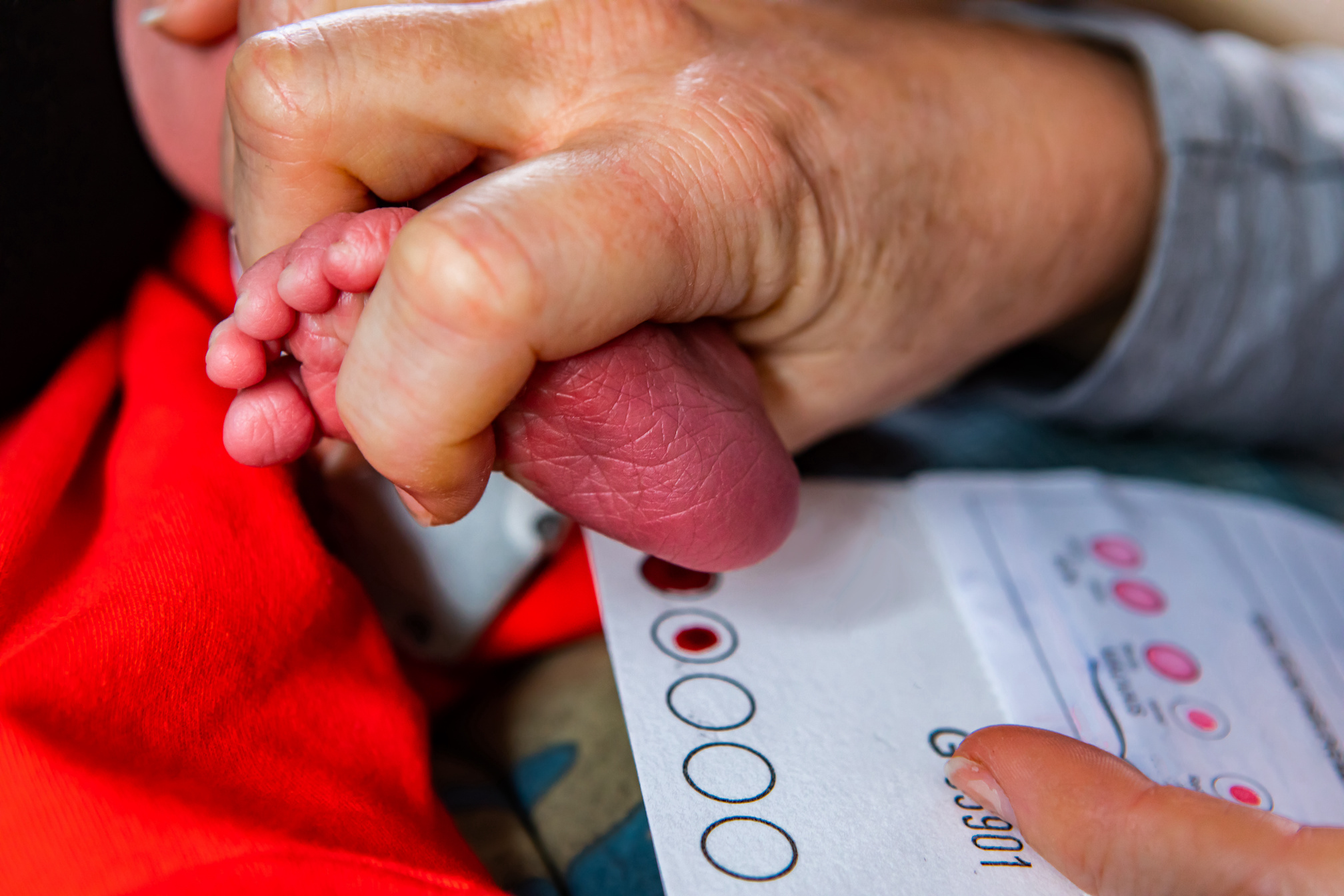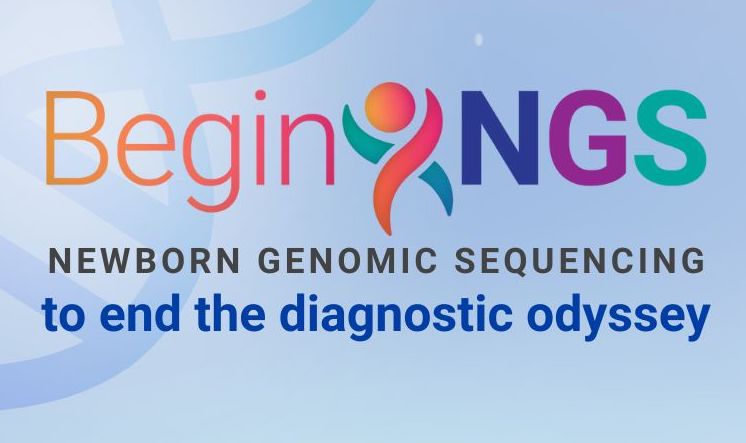It’s Newborn Screening Awareness Month, a time for Ultragenyx to share the wins and thank those who helped to make them happen. Tennessee and Alabama achieved bill passage requiring Recommended Uniform Screening Panel (RUSP) alignment this year thanks to the tireless and persistent effort of the coalitions of people who live with, and care about, rare diseases. With these legislative wins, the total number of states that have passed RUSP-alignment legislation is 13.
In Tennessee, Ultragenyx formed a 10-member coalition of supporters that included Life Sciences Tennessee and members of the Tennessee Rare Disease Advisory Council. The coalition worked together to highlight Rare Disease Day by arranging for a bridge in Nashville to be lit up; hosting a giant billboard that said, “Show your Stripes;” and successfully arranging a Proclamation from the Governor.
In addition, the coalition helped to support our efforts to identify a network of people in the state who really cared about policies that were important to the rare disease community allowing us to find additional ways of supporting the rare disease community in Tennessee, and ultimately leading the newborn screening legislative effort to success.
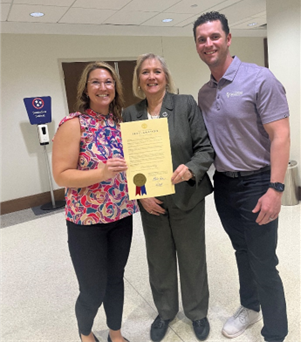
Photo: From left to right: Allie Ladd, Tennessee State Senator Becky Massey and Ryan Ladd, celebrating Tennessee’s Rare Disease Day Proclamation

Photo: Nashville’s Gateway Bridge lit up on Rare Disease Day
Among these individuals was Allie Ladd, founder of the Kennedy Ladd Foundation in Knoxville. Allie’s daughter, Kennedy, and her son, Lincoln, both live with mucopolysaccharidosis type I (MPS I). Allie came to Nashville to provide testimony on Rare Disease Day at the state Senate committee hearing, and then she, her husband Ryan, and Erin Frey, senior director of government affairs at Ultragenyx, spent the day together. Allie and Ryan’s Rare Disease Day experience was the catalyst that motivated Allie to decide to start working on the Kennedy Ladd Foundation full time.
“This all started in 2022 with a small group of people who cared about the rare disease community in Tennessee. Throughout 2023, the group kept growing. As the 2024 legislative session started, I learned about Allie Ladd and The Kennedy Ladd Foundation from Knoxville. I called Allie and told her what we were endeavoring to do with newborn screening. The timing was such that Allie decided not only to help with the newborn screening bill, but to also time her testimony to coincide with Rare Disease Day. It’s amazing when stars align, and several people work together. I couldn’t have known that all that would happen. That one tiny phone call with Allie seemed like the tipping point,” Erin said.
After the bill was signed into law in April, “I was really happy to tell Allie that the bill passed and was signed into law in April,” added Erin.
In Alabama, the Alabama RARE coalition held a newborn screening breakfast event for legislators in February. Leaders of the AL RARE Newborn Screening Executive Committee, including Swapna Kakani, who is a nationwide rare disease advocate and lives with Short Bowel Syndrome; Shannon Sharp, who is the leader of the AL RDAC and Vice President at the XLH Network and lives with X–Linked Hypophosphatemia (XLH); Brooke Thomas, who is the mother of three children who live with MPS I. This was particularly personal for Brooke because MPS I still hadn’t been added to the Alabama state newborn screening panel even though it was added to the RUSP in February 2016.
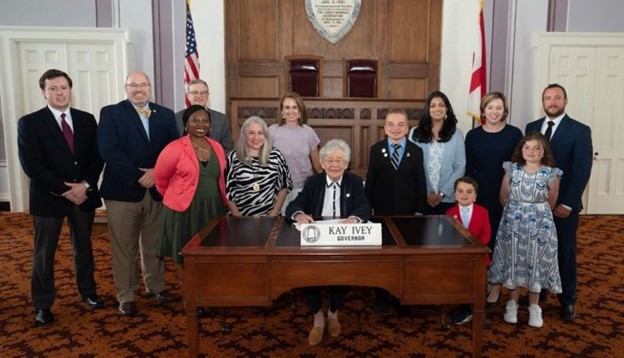
Photo: Governor Kay Ivey (center) with Alabama legislative members and Alabama RARE members including Zachary Thomas and his family
The bill put forward was named for Brooke’s son, Zachary Thomas, who enthusiastically supported the bill along the ups and downs of the legislative session until it passed, and he was there to watch the bill be signed into law on his birthday in May. In addition, MPS I was added on July 29th to the state’s newborn screening panel, so now every baby born in Alabama receives screening for the disease.
The fight for equitable newborn screening continues. Ultragenyx will focus on RUSP-alignment legislation in Colorado, Washington and Wisconsin in 2025 and will engage in initial conversations about considering genetic sequencing as part of newborn screening programs in states that are focused on the future of newborn screening.
Early detection of rare diseases can result in prompt treatment that can help prevent permanent disability, developmental delay, and death. It’s important for states to screen for all conditions on the RUSP and to also be allowed to screen for non-RUSP conditions if they have the capacity and the ability. This enormous impact is what drives our State Government Affairs team to “Go Beyond Every Day” to support early diagnoses.
To learn more about newborn screening and how we advocate for newborn screening to keep pace with innovation visit: https://newbornscreening.ultragenyx.com

